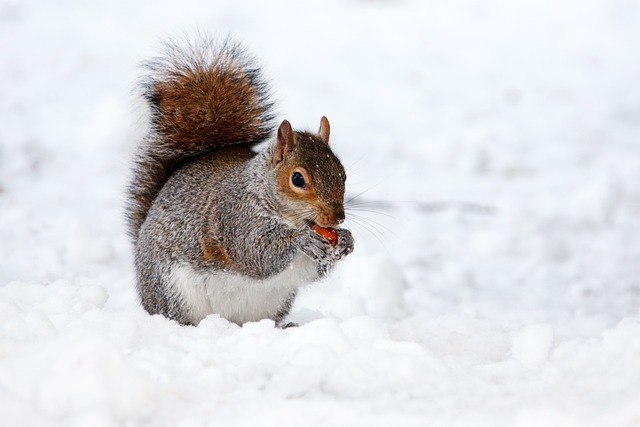Snakes are fascinating creatures that have been the subject of many myths and legends. One of the most common questions people ask about snakes is whether or not they eat squirrels. Unfortunately, the answer to this question is not straightforward, as it depends on the snake species and the squirrel’s size.
Some species of snakes, such as the black rat snake and the gray rat snake, are known to eat squirrels. These snakes are constrictors, which means they wrap their bodies around their prey and squeeze until the prey suffocates. Other snakes, such as the garter and king snakes, eat the smaller prey, such as insects, rodents, and lizards, and are unlikely to eat a squirrel.
Despite the fact that some snakes do eat squirrels, it is important to remember that snakes play an important role in the ecosystem. For example, they help to control the populations of rodents and other small animals, which can prevent the spread of disease and damage to crops. So while it may be unsettling to think of a snake eating a squirrel, it is essential to remember that snakes are vital to the natural world.
Do Snakes Eat Squirrels?
Snakes are known to be carnivorous and eat a variety of small animals. One common question people have is whether snakes eat squirrels. In this section, we will explore the topic and provide some insights.
Types of Snakes that Eat Squirrels
Several species of snakes eat squirrels. Some of the most common ones include:
- Eastern rat snake
- Black rat snake
- Corn snake
- Gray rat snake
- Bull snake
As part of their diet, these snakes feed on rodents, including squirrels. They are found in different parts of the world and have various hunting and feeding habits.
How do Snakes Hunt Squirrels?
Snakes have different hunting techniques, depending on the species and the prey they target. When it comes to squirrels, snakes use different strategies to catch them. Some snakes, like the Eastern rat snake, climb trees to reach the squirrels’ nests. They then use their strong jaws and constricting abilities to capture and kill the prey.
Other snakes, like the black rat snake, hunt squirrels on the ground. They use their sense of smell to track down the prey and then ambush them. They strike quickly and use their sharp teeth to hold onto the prey while constricting it to death.
Overall, snakes are efficient predators that have adapted to different environments and prey. For example, while not all snakes eat squirrels, several species do, and they have developed different hunting techniques to catch them.
What Happens When Snakes Eat Squirrels?
Digestion Process
When a snake eats a squirrel, the digestive process begins in the stomach. The stomach produces digestive enzymes to break down the proteins and other nutrients in the squirrel’s body. In addition, the stomach’s acidic environment helps dissolve the bones passed through the snake’s digestive system.
After the stomach, the food moves to the small intestine, where nutrients are absorbed into the bloodstream. The remaining waste is passed through the large intestine and out of the snake’s body as feces.
Benefits of Eating Squirrels
Snakes are opportunistic feeders, meaning they will eat whatever prey is available. Squirrels are a common food source for many snake species and provide several benefits.
- Squirrels are high in protein, which is essential for snakes’ growth and development.
- Squirrels are also a good source of fat, which provides energy for the snake.
- Eating squirrels can help snakes maintain a healthy weight and body condition.
In addition, squirrels are abundant in many areas, making them a readily available food source for snakes.
Prevention of Snakes Eating Squirrels
Natural Predators of Snakes
Snakes are common prey for many animals, including birds of prey such as hawks and eagles and larger mammals like coyotes and foxes. These predators can help to control the snake population, which in turn can help to reduce the number of squirrels that are eaten by snakes.
Preventative Measures
Several steps can be taken to prevent snakes from eating squirrels:
- First, keep the yard clean and debris-free, as snakes are attracted to areas with clutter and hiding spots.
- Seal up any cracks or holes in the foundation of the house and any gaps in doors or windows to prevent snakes from entering the home.
- Remove bird feeders or other food sources that may attract squirrels, as this can also attract snakes.
- Consider installing snake fencing around the property’s perimeter to keep snakes out.
- Use snake repellents around the property’s perimeter, such as mothballs or sulfur.
It is important to note that while these measures can help to reduce the risk of snakes eating squirrels, they are not foolproof. Snakes are adaptable creatures and may find ways to overcome these obstacles.




